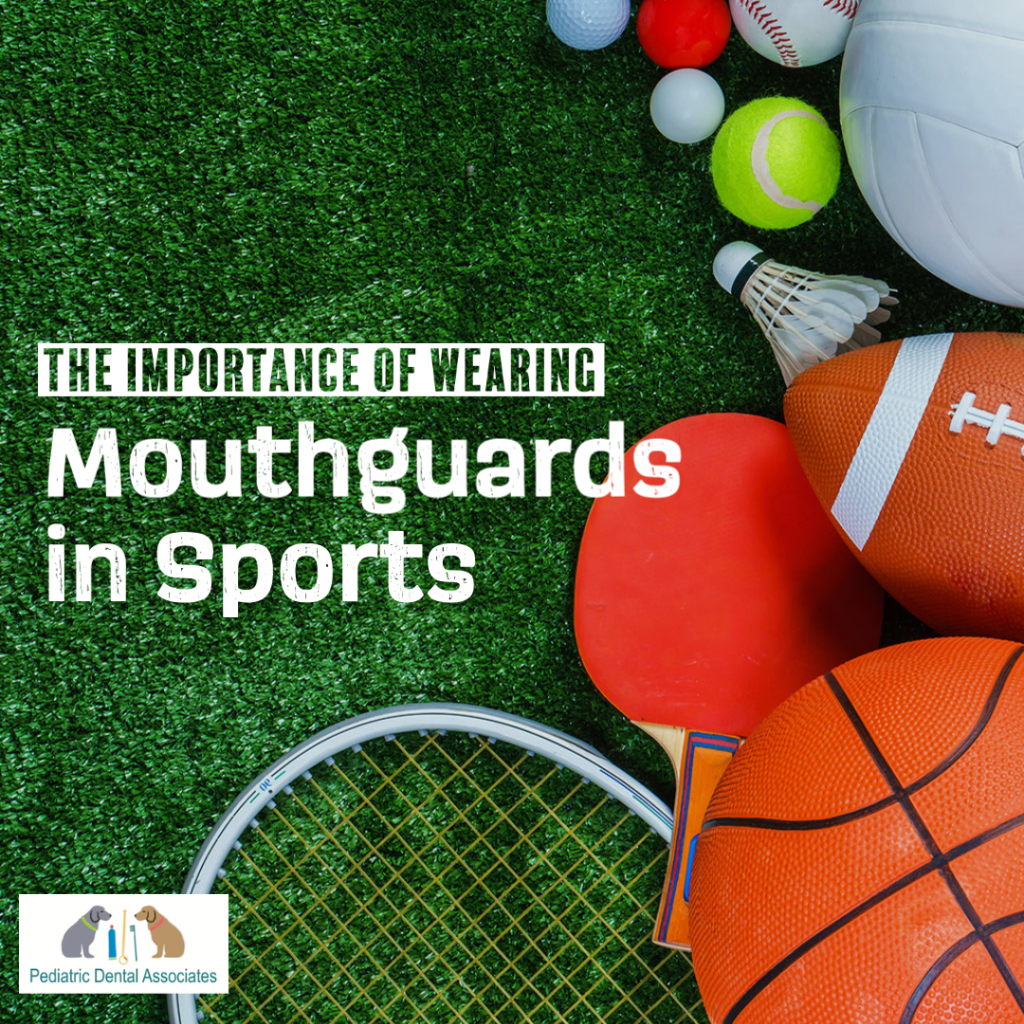Prevent Dental Injuries
A new school year is kicking off across the country. With it begins a new season of extra-curricular sports activities. You would never send your rising football star onto the field without a protective helmet and pads. However, don’t overlook one smaller, but no less important piece of equipment: a mouthguard.
How Mouthguards Protect Your Teeth
According to the Journal of the American Dental Association (JADA), between 13-39% of all dental injuries are sports related. Wearing a mouthguard is effective at reducing these injuries. But a 2018 study conducted by Dental Traumatology found that only 41% of athletes wear them.
Mouthguards are usually constructed from a soft plastic or laminate material. They typically cover the upper teeth, and when properly worn they help cushion the impact of a blow to the face. This not only reduces the risk of broken teeth, but also prevents injuries to the mouth, tongue, face and jaw.
Types of Activities Where You Should Wear a Mouthguard
Since 1962, mouthguards were made mandatory for high school and collegiate football players during practice and games. Since this requirement, the percentage of dental injuries in football has dropped from approximately 50% to 0.5%. Basketball has since taken its place as the most high-risk sport for dental injuries.
The American Dental Association (ADA) also recommends children and youth should wear a properly fitted mouthguard for the following sports:
• handball
• hockey
• soccer
• bicycling
• softball
• baseball
• boxing
• lacrosse
• squash
• equestrian events
• martial arts
• racquetball
• volleyball
• rugby
• water polo
• field hockey
• shotputting
• weightlifting
• wrestling
• gymnastics
Types of Mouthguards
There are three types of mouthguards available. Each has its advantages and disadvantages.
Stock – comes premade in a variety of shapes and sizes. While they are the most budget friendly option, they typically don’t offer the most comfortable fit or a high level of protection because they are built to accommodate a wide number of mouths. However, they are preferred over no protection at all.
Boil-and-bite – these are made from a thermoplastic material that is first heated in boiling water until it becomes soft and pliable. The athlete then bites down on the mouthguard to make an impression of their teeth.
Custom – these are custom made through a dentist. An impression is taken of the teeth, then a mouthguard is fabricated to specifically fit that mouth. While more expensive than the other two options, custom mouthguards provide the most comfortable fit and the highest level of protection. All PDA locations provide custom mouthguards – just schedule an appointment for a fitting!
Caring for Your Mouthguard
It’s important to keep your mouthguard clean between uses to prevent the spread of germs and bacteria.
• Rinse the mouthguard before and after each use with clean water.
• Regularly wash the mouthguard with soap and water. You can also use a toothbrush and toothpaste. Rinse it thoroughly.
• Store the mouthguard in a sturdy case with vents to prevent bacteria from growing. This not only keeps the mouthguard clean but also prevents damage.
• Don’t put your mouthguard in hot water or leave it in direct sunlight, as this could cause warping.
• Replace the mouthguard immediately at the first signs of damage or wear and tear.
Pediatric Dental Associates of Alabama is led by top-rated pediatric dentists with locations in Birmingham, Cullman, Medplex-Hoover, Oxford and Pell City. Our vision is to be the premier provider of pediatric dental services in Alabama. Beautiful smiles are our specialty!

